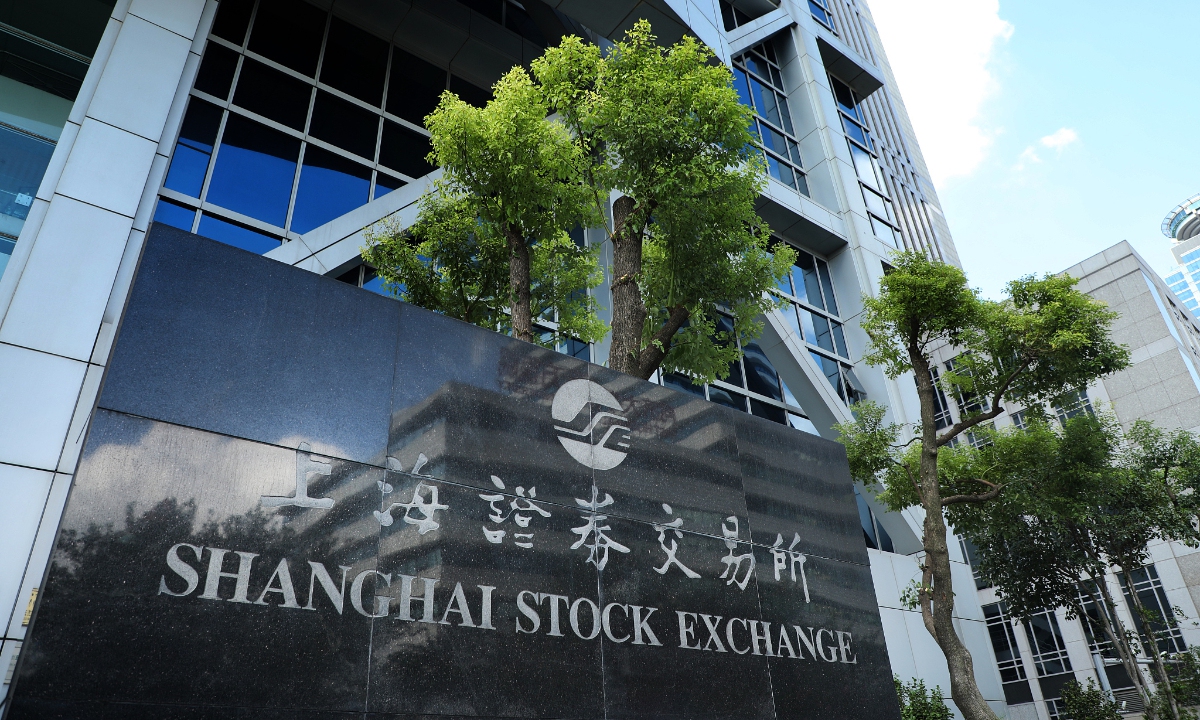
Shanghai Stock Exchange Photo:CFP
China’s three major stock exchanges in Shanghai, Shenzhen and Beijing on Monday implemented Program Trading Management Measures in relation to new regulations on program trading activities, or quant trading.
Analysts said the move will help rectify capital market trading order and improve market fairness, boost investor confidence, and support long-term capital market stability.
With the rise of new information technologies in recent years, program trading has become an important trading method. While it enhances market activity, efficiency, and liquidity, it also gives institutional players, especially those using high-frequency trading, substantial advantages in technology, information, and execution speed over small investors. At certain times, issues such as strategy convergence and trading resonance may increase market volatility, the Shanghai Stock Exchange (SSE) said earlier.
For one single account, the detailed rules define over 300 order submissions and cancellations within a second or over 20,000 such transactions in a day as high-frequency trading, according to the SSE.
If investors exhibit abnormal trading behavior under high-frequency conditions, the SSE may impose strict self-regulatory measures and require members to tighten oversight of their clients’ trading activity, the statement read.
The Shenzhen and Beijing stock exchanges also adopted the same rules.
“The new rules are conducive to reducing market volatility caused by program trading, boosting investor confidence, and promoting the long-term healthy development of China’s capital market,” Yang Delong, chief economist at Shenzhen-based First Seafront Fund, told the Global Times on Monday.
In the past, some institutions exploited their technological advantages to engage in high-frequency order submissions and cancellations, creating false liquidity to make individual investors to follow suit. The new rules bring such practices under regulatory scrutiny, which Yang said will help curb market manipulation, Yang said.
Monday’s implementation of the new measures came as the industry regulators have stepped up oversight over program trading in recent years. The China Securities Regulatory Commission, the country’s top securities regulator, issued new rules in October 2024 to mitigate risks tied to program trading.
Strict regulation of program trading is already adopted by major mature markets in the world. Given that individuals form the majority of stock market investors in China, tighter management are necessary, Dong Shaopeng, a senior research fellow at the Chongyang Institute for Financial Studies at Renmin University of China, told the Global Times on Monday.
“Looking ahead, the stable operation of China’s stock market has solid foundation of the real economy. However, institutional shortcomings still need to be addressed to improve price discovery and support the capital market’s long-term healthy development,” Dong said.
Despite the complex and volatile external environment, China’s strategic direction toward high-quality economic development remains clear and firm, which, along with the increased stability and predictability of macro-policies, especially timely policy adjustments, has strengthened foreign investors’ confidence in investing in China’s capital market, Wu Qing, head of the China Securities Regulatory Commission, said at a press conference on May 7, vowing a firm commitment to boost high-level opening-up of the capital market.





